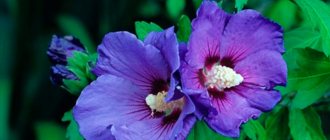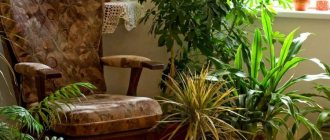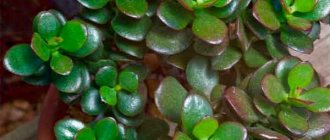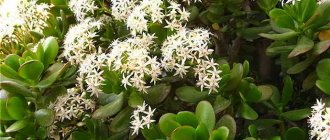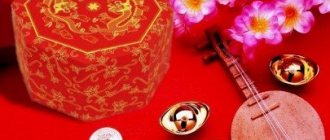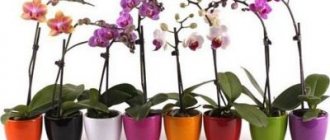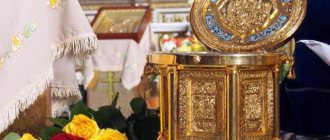Gardening a room (the right choice of plant and its installation in the right place) plays an important role in charging the space with positive energy.
For example, by choosing the right flowers for your office according to Feng Shui, you can attract new clients to your business or improve relationships with old ones, as well as create a more harmonious working atmosphere.
But our green friends also require special attention to themselves so that they can be healthy, so the negative energy of the room can negatively affect their health.
General rules for landscaping your home
When choosing plants for your home according to Feng Shui, you should follow some rules. We list them below.
- It is not advisable to keep artificial flowers in the house.
- It is also not advisable to keep wilted (dried flowers) longer than necessary. They become “vacuum cleaners” of good Qi in your home and can provoke the proliferation of pathogenic bacteria that can affect both humans and other indoor plants.
- Place potted plants near family recreation areas with caution. It is advisable that they be at least a meter away from him. This is necessary due to the fact that various processes occur in the pot (decomposition and rotting of useful substances for the flower), which release not very good Qi.
- It is not advisable to place indoor flowers in the bedroom, otherwise it will be dominated by strong Yang energy, which can disrupt your intimate life.
- Inspect your home. Where there are corners, niches and places with accumulating energy, flowers should be placed.
- Stock up on red pots if you have moisture-loving plants. They will be better off in them.
How not to make a mistake
In addition, be sure to give other people plants that for some reason you don’t like, are tired of, or are unpleasant. This applies, first of all, to gifts. It is also believed that yang energy will disappear if you place flowers between doors, at the same distance between windows, or a window and a door.
And be sure to remember: a well-watered and well-groomed plant will thank you in any case.
Indoor plants complement the interior of the kitchen. If they are chosen skillfully, the kitchen will change its purpose, becoming an aesthetic creation. Together with the plants, we will select suitable pots or flowerpots. We follow the advice of designers - use more green color, create compositions to get a decorative effect.
Plants for the kitchen in pots
Begonia: the flower of businessmen and lovers
Begonia received its name in the 17th century in honor of the botanist who studied it. His name was M. Begon. There are more than 400 species of this plant, but three are the most popular. Let's consider the meaning of each type of begonia according to Feng Shui.
Royal begonia
Evergreen bushes with beautiful flowers. They should be placed on the northern windows of those houses that are famous for their hospitality. Begonia is a natural energy filter - no matter what your guests come with, the plant will pass all the energy through itself and give out only positive energy. That is why it is very good for living rooms.
It should also be noted that begonia helps to speed up the pace of your life, and all this will look very harmonious. It also simply needs to be placed in a house where people suffer from frequent bronchitis or simply have a heavy smoker.
Begonia everblooming
A more capricious plant, but very beautiful. This type of begonia should be placed in a house where melancholic or very sentimental people live. Its energy helps control emotions and prevents the progression of depression. If there are troubles or a dark streak in your life, try telling all this to a flower. You will immediately feel relief.
This type is well suited for offices, developing intuition and sensitivity. Such begonia can help overcome indecision and confusion in words at the right moment, as well as the fear of beginning (no matter what - business, recognition, etc.).
Tuberous begonia
Flower of harmony and peace. If installed indoors, it will promote reconciliation, especially among spouses, as well as reduce conflicts between children and parents. It is this type of begonia that can be found among psychoanalysts and psychotherapists. With its help you can get answers to difficult questions or relieve mental stress.
Where to place begonia
This flower should not be placed next to cacti or other similar indoor flowers. Also make sure that the begonia does not stand in a straight line between the doors or window, as it will not have the effect for which it was purchased.
It is advisable to plant a plant with pink, orange and red flowers in one large pot. This will help activate feelings and improve sex life.
How to care for begonia
Although royal begonia is a moisture-loving plant, it cannot be sprayed, as moisture leaves spots on the leaves of the flower that look like burns. She also does not like dark rooms. If you decide to purchase an everflowering begonia, then it needs to create a humid tropical jungle climate.
Tuberous begonia is the most capricious. It should be watered at the same time, but not too wet. It is advisable to keep it in semi-darkness; there should be no drafts in the room, but it should be regularly ventilated.
Geranium: flower of energetic harmony
Pelargonium (most often this plant is called geranium) is not a demanding, but very useful indoor flower. It has unique properties, producing substances that protect against malignant tumors in the body.
The energetic properties of geranium are quite powerful. The plant can give a person vigor and give him strength in times of need. You just need to sit next to him for a little while. Also, in the case of strong negative emotions, geranium helps to soften them and restore harmony, both with oneself and between people.
Pelargonium can prevent the onset of the disease, you just need to pay attention to it. If it blooms strongly and luxuriantly, then someone in your household is releasing negative energy, which it absorbs. Take a closer look at your family.
Where to place pelargonium according to Feng Shui
But according to Feng Shui, geraniums should be placed in the southeastern sector of the apartment or garden. This way she can help her owners in life. If you are the owner of a private house, then plant the plant near the main entrance on both sides. This way it will prevent negative energy from entering the house.
It is not recommended to place it close to the bed, as geranium has a strong smell of essential oils (to avoid allergic reactions)
Hibiscus: pros and cons
A very controversial and controversial flower. Another name for it is Chinese rose. Many feng shui experts believe that hibiscus with red flowers can strengthen a marriage and promote family happiness, since powerful sexual energy comes from flowers.
A plant with red flowers is contraindicated for those people who have a sensitive nervous system; they are excitable and unbalanced. In this case, the plant should have softer orange flowers.
It should be noted that hibiscus can help unsociable people become more open and free towards others. It becomes much easier to communicate. Buy hibiscus for your home if you feel that your emotional component is suppressed by rational thinking. A flower will allow you to balance everything.
Contrasting properties of hibiscus
There is another theory that hibiscus blooms only in the house where someone is seriously ill, and it can also draw energy from those around them. Feng Shui experts think differently. They claim that the energy of the flower flows upward and diverges to the sides. That is why sick flowers come to life next to him.
But if you are in doubt, then observe the situation in the family - if after purchasing the flower the relationship worsened and something changed for the worse, it is better to remove the plant.
Where to place hibiscus according to Feng Shui
If you decide to purchase a hibiscus with red flowers, then it can be placed in the matrimonial bedroom. It will help restore relationships and rekindle the fire between spouses.
If you are deciding where to place hibiscus according to Feng Shui with orange flowers, you can choose any room for it except the bedroom. Yellow is the color of separation, so it is better not to place a Chinese rose there. The best place would be the southeastern part of the apartment or house. Choose square or rectangular flowerpots.
It is better to place hibiscus with white flowers in the western part of the house, and with red flowers in the southern part. For white flowers, choose round flowerpots of golden or yellow color; for red flowers, choose triangular ones.
Feng Shui and flowers
In addition to beauty and aesthetics, flowers have many useful features.
- Firstly , they renew the air we breathe.
- Secondly , the green color of their leaves has a beneficial effect on mental activity, calming and adjusting the entire human nervous system to work.
- Thirdly , constant proximity to them gives a healing effect for the body as a whole.
Each plant goes through its own life cycle. This small innocent creature, at the same time, has a powerful influence on the world around it. Without flowers, humanity would not be able to fully exist.
Life would not bring joy, and instead of colorful and bright petals, dullness and callousness would reign around. Flowers feel our feelings, they help us cope with difficult moments.
Hydrangea: flower of the hormonal background of the inhabitants of the house
If you want stability in your home, then be sure to purchase hydrangea. Its soft energy helps smooth out conflicts and restrain the desire for argument and quarrels (this is especially important if you have people coming to visit you who can hardly tolerate each other).
It is believed that hydrangea can show the energy level in the home. If it is positive, then the flowering of the plant will be lush and abundant, and if there is a lot of negative, then the hydrangea most likely will not bloom at all. Healthy flowers can normalize the emotional state of the inhabitants of the house, calm and eliminate tension.
Hydrangea has a positive effect on those people who have a creative character. Thanks to her, they can make spontaneous decisions. The same people who are in melancholy easily leave it, as soon as they find themselves surrounded by these beautiful flowers.
The meaning of hydrangea is modesty, loyalty and hope. Many peoples believe that these flowers can ward off illnesses and various misfortunes from home.
Where is the best place to place hydrangea?
The best place for hydrangea is the southwest of the house. A flower placed in this direction has a beneficial effect on the intimate sphere of the spouses, and also has a positive effect on hormonal levels.
Orchid according to Feng Shui: a symbol of harmony and perfection
The importance of the orchid flower in the interior can hardly be overestimated. This is a bright symbol of love and romance, as well as harmony. That is why it is often presented as a gift to loved ones and placed in rooms for prayer and meditation.
The orchid should not be placed in close proximity to children and people with unstable mental health. In terms of its meaning, an orchid is a delicate flower. She reacts well to the emotional background of the house where she lives. If it is negative, then the flower may die.
How to place an orchid correctly
It is believed that orchids should not be placed in the bedroom, as these feminine flowers completely suppress the masculine principle. Also, they should not be placed in the bedroom where boys live. In general, a bedroom for an orchid is taboo. Its activation occurs just at night, it begins to draw energy from the vulnerable sleeper. A good place for an orchid is the living room.
This flower will work very well in a room for meditation or prayer, as it can awaken spiritual feelings and thoughts. Works well on the subconscious. It would be ideal to place the orchid where there is a large flow of qi - an entrance hall or corridor. The flower can easily hold him back.
Let's look at how you can place an orchid according to the cardinal directions:
- southeast - the flower will contribute to success in your endeavors, as well as prosperity and good luck;
- southwest - a good location of the orchid for a family in which there are frequent quarrels (it will be able to improve relationships and establish harmony in the family);
- east - orchids should be moved to this part of the house if someone in the house is sick (it will contribute to a speedy recovery and help improve health);
- north – suitable for business people (especially if the house has an office in this sector);
- northwest - relationships with loved ones are gradually improving.
Houseplants amulets according to Feng Shui
Everyone knows that living indoor plants have a good effect on the energy in the house and on a person. Properly selected Feng Shui plants can not only saturate the air with oxygen and clear it of dust, but also help owners gain health, peace in the family and material well-being. According to Feng Shui, houseplants are endowed with a very good property - attracting beneficial vital energy Qi into the living space.
Well-being in the home depends on Qi energy. Knowing Feng Shui techniques for indoor plants, you can control the energies. Indoor plants can stop the influence of negative Sha energy or slow down too fast Qi energy. After all, too fast life energy Qi can harm your home. Sha energy is generated due to various reasons, for example due to sharp protruding corners in the house and on furniture. Protruding corners can be found in every home, there is no escape from them, but indoor plants will help us smooth out the influence of negative energy.
In Feng Shui, the basic elements are used to characterize all objects: Fire, Earth, Water, Metal, Wood, and each element corresponds to a specific location in the house. Plants belong to the Wood element, so the best location for them would be the eastern, southeastern sectors of the home. The element of Wood in Feng Shui means vitality, growth, prosperity, so plants in the house contribute to the growth of wealth, give strength to dreams, strengthen vital energy and health.
But it is not always possible to place a plant according to Feng Shui in the right part of the apartment. After all, we try to place all the flowers and plants closer to the window, where there is greater access to light. If it is not possible to place the plant in the right place, then hang the plant on the wall or make shelves for them, while the rules of location according to Feng Shui will be observed. By placing flowers on the wall, they will receive enough light.
But according to Feng Shui, not all flowers belong to the Wood element. Flowering plants of red, pink, and purple colors belong to the Fire element, so they should be located in the southern part of the house. Color is important in Feng Shui, so keep this in mind when arranging your plants. The plant has begun to bloom, then move it to the southern part of the house, this will activate the action of Qi energy and strengthen the work of this sector.
At the same time, not all Feng Shui plants can be a source of positive energy in the house; some plants are even a source of negative energy. Therefore, before you get a potty pet at home, adhere to the following rules:
Choosing indoor plants according to Feng Shui
Never bring home sick plants or plants with signs of wilting, they are powerful sources of negative Sha energy. If you have a sick plant at home, try to cure it. Do not leave dried leaves and flowers for a long time; tear them off. According to Feng Shui, dry leaves symbolize death, and therefore are the source of Sha. It happens that a plant continues to hurt and stops growing, no matter how we treat it. The cause of a long illness of a plant may not be poor care, but a bad environment in the house. It has been noticed that in houses where there is no love, frequent quarrels occur, and flowers do not last long. Try to improve relations between relatives and then you will be guaranteed a blooming garden.
If you decide to decorate your home with Feng Shui plants, then choose flowers with rounded leaves. Round and oval leaves are symbols of wealth and good luck. Sharp and narrow, carved and prickly leaves do not attract positive energy. This is due to the movement of energy around the house. Positive energy should smoothly flow around the rounded leaves and continue to move around the house. Sharp leaves become an obstacle to the smooth movement of energy. The energy in such leaves becomes confused and its movements become intermittent and less smooth. Thus, positive energy turns into negative.
Therefore, even very beautiful cacti cannot be placed in residential areas. Positive Qi energy gets caught on the thorns and turns into negative energy, which does not have the best effect on the well-being and mood of the owners of the house. Young girls should not have cacti at home; such proximity negatively affects happiness in their personal lives.
But what to do if you consider cacti to be the most extraordinary and best plants in the world. Then simply move them to a non-residential premises, for example, to an insulated balcony. Then the cactus will use its thorns to capture negative energy from the street and not let it inside the house. It is also believed that cacti placed on the balcony protect the house from thieves. Cacti capture negative Sha energy and prevent it from moving further, so they are often placed next to computers to absorb harmful radiation.
Such a wonderful and popular plant, Aloe, is considered a cactus in Feng Shui. Aloe, like a cactus, accumulates negative energy around itself, which negatively affects the emotional state and health of all family members. According to Feng Shui, scarlet is prohibited from being placed in residential premises; it is especially not recommended in the bedroom.
Despite the fact that arrangements of dried flowers look very attractive, they cannot be placed in the house. They will not help improve the energy at home, but will only worsen it. Dried flowers are a source of negative energy, since dried flowers are dead plants, they symbolize death, and therefore are destructive to the vital energy Qi.
To improve the energy background of your home, choose flowers with rounded leaves pointing upward. Such plants best activate the positive energy in the room and have a beneficial effect on the personal life-giving force of Qi of each family member.
Types of useful plants feng shui
In the teachings of Feng Shui, several plants have always been identified that attract positive Qi energy more strongly than others, these include the golden lotus, peony, chrysanthemum and white magnolia. But such plants are problematic to maintain at home. Feng Shui allows you to use images of flowers or artificial copies of them for your home. Therefore, to improve energy, hang pictures depicting such flowers or buy artificial flowers, just wipe the dust off them regularly.
Fresh cut peonies and chrysanthemums can be placed in a vase, just change the water regularly; rotten, standing water emits negative energy. You should throw away cut flowers as soon as signs of wilting appear; do not accumulate negative Sha energy. The peony is considered a noble and courageous flower, the flower of rulers, and if you have grandiose plans for the future, then be sure to place fresh peonies in your home. Chrysanthemums are considered a flower of fun and joy; they lift your spirits and fill your home with light and comfort.
In Feng Shui, the orchid is also considered a powerful plant for creating a positive energy background in the home. If there is a girl growing up in your family, then be sure to decorate her room with images of orchids or fresh flowers. This will help the girl open up in the future, become more feminine and beautiful. Images of white magnolia have the same effect, since orchid and magnolia are feminine flowers. If you are a girl, then install a photo of an orchid on your computer desktop and you will be saturated with tenderness and beauty from the flower every day.
Geranium not only cleanses the air of harmful substances in enclosed spaces, but also enriches the home with positive energy. Geranium also gives a person strength, endurance, and helps to overcome obstacles on the path of life. In order for geranium to please all year round, it needs to be watered regularly and abundantly, and annually transplanted from a cramped pot to a larger one. Do not forget to pick off dried leaves and flowers so that the plant does not become a source of negative energy.
According to Feng Shui, violet also creates positive energy in the home. Its rounded leaves are ideal for the smooth movement of Qi energy. Moreover, with proper and regular care, violets can bloom almost all year round. Blooming violets give you good health and a great mood.
According to the teachings of Feng Shui, it is very useful to have a living money tree or crassula at home. The leaves of the crassula are round in shape, resembling small coins. The money tree is believed to attract wealth into the home. To enhance the effect of the money tree, it must be placed in the wealth sector, which corresponds to the southeastern part of the house. Put a few coins under a pot with a plant - this will ensure a stable flow of money into the house. If you decide to start a money tree, then take young shoots only from the houses of wealthy owners.
Ampelous plants perfectly absorb negative Sha energy. They hang in beautiful waterfalls from tall cabinets and shelves, smoothing out the sharp corners of the furniture. It is very useful to hang them in the corners of the room, because it is in the corners that negative energy accumulates. But hanging plants are not suitable for lonely people. Hanging plants are considered a symbol of loneliness. So if you have difficulties in your personal life, an ampelous flower will complicate the search for your soulmate. Hanging plants are not a hindrance for happy couples; feel free to place them at home. Ampelous plants include:
Ivy
Hoya fleshy
Tradescantia
Fuchsia ampelous
Columnea
Fittonia ampelous
According to Feng Shui, dwarf bonsai trees are considered the most powerful plants. Bonsai is a living tree in miniature, a symbol of life and health, it attracts the vital force of Qi better than others. If it is not possible to have a live bonsai, then you can put an artificial tree in your house - the effect will be no worse, the main thing is not to forget to wipe the dust off it. An analogue of bonsai is topinary, but choose a composition that is not made from dried flowers.
According to Feng Shui, indoor plants are a powerful tool for attracting positive Qi energy. Flowers love attention no less than humans or animals. Love your potted pets, take care of them, water them regularly, pick off dry leaves and talk to them. This way you will convey to them a piece of your love and a positive attitude, and they, in turn, will answer you. They will grow well, begin to bloom and at the same time will continuously increase the positive energy of your home. You can find out which house plants will bring good luck and improve the microclimate in the house in the next article. Good luck to you!
Azalea: inspiration and muse
According to Feng Shui, the meaning of the azalea flower is pure energy of inspiration. By placing it in the home of a creative person, you will contribute to the emergence of new masterpieces and creations. Alalia is able to awaken altruism in a person and bring a charge of vigor to the home.
This flower helps to get rid of the habit of gossip, and also relieves its owner from gossip around him. If there are people in the house with a very excitable nervous system, then the plant will help calm down.
Where to place the azalea
It is favorable to place a flowerpot with azaleas with white flowers in the Earth sector. There she will be able to strengthen Metal (this should be done if it is favorable).
By placing a flower with white buds in the northeast, northwest, southeast, southwest, you can strengthen the energy of money. If the inhabitants of the house have poor memory or increased intracranial pressure, then place the azalea in the directions indicated above, so you can reduce the influence of the Earth element.
To increase the energy of the Earth in the indicated directions, you need to place azaleas with orange, pink or red buds. This will help to exert positive energy on the stomach, bones and muscles.
Place a pot of red azalea in the bedroom on the windowsill on the south side - you will immediately feel the activation of sexual energy in your relationship.
Selecting indoor plants based on their energy properties
Plants with active energy
: yucca, cactus, coconut palm, anthurium. They have no place in a bedroom or nursery; place them, for example, at the entrance to a house or apartment, and they will protect you from evil forces.
Plants with calm energy:
aloe, begonia, camellia, guzmania, hoya, soleirolia.
They will give you self-confidence, put you in a peaceful mood, create harmony, and promote good sleep .
Plants-neutralizers
: ficus benjamina, ivy, monstera, philodendron, nephrolepis (fern). Eliminate bad energy or transform it into beneficial energy for a person.
Resuscitating plants:
bamboo, crassula, cyclamen, bougainvillea, cyperus. They restore strength, promote a good mood, and give vigor. Bamboo influences a person’s character, endowing him with its main qualities - the ability to “take a hit” and remain evergreen, that is, young.
© Ogudin Valentin
Ficus according to Feng Shui - positive and cheerful in the apartment
The importance of ficus for the owners of an apartment or house is very great, especially if a certain amount of energy needs to be introduced. It has a positive effect on childbirth, so it is recommended to purchase it for couples who cannot have children.
Ficus very easily harmonizes family relationships, creates a good and favorable home atmosphere, and reduces the threshold of aggressiveness.
Ficus Benjamin will also help reduce nervous tension among those living indoors and give them a charge of vigor and positivity. However, you need to know the right place to place it.
Where to put ficus according to Feng Shui
Now let’s look in more detail at where to place the ficus so that it brings the greatest benefit. The southeast is one of the good directions where you can place this flower. For the inhabitants of the house in this sector, it will bring peace, harmony and prudence. The direction is good for hot-tempered people, it will make them calmer, and also for insecure people, they will be able to become more purposeful.
Some Feng Shui experts recommend placing this flower in the bedroom. It can make your sleep more restful. Ficus in the kitchen will protect the inhabitants of the house from poverty and hunger, and will attract cash flow. Thanks to its properties of creating a peaceful atmosphere, ficus looks good in the living room.
In some areas of the house it is strictly not recommended to install fixings. This is the center, southwest and northeast of the apartment. These directions are associated with the elements of the Earth, so a plant placed in this zone will force the inhabitants of the house to think only about material wealth.
How to care for a plant
Ficus requires careful care. The plant does not tolerate drafts and dust, loves space and plenty of light. Ficus also needs to be watered or sprayed frequently, especially in winter when the heating in the house is turned on.
To make your flower magical, you need to transplant the ficus correctly. You need to decide what you want to get from his presence in your home (financial well-being, harmony in family relationships, children). Then ask the ficus for help; you can even place notes under the roots during replanting, symbols of what you need. After some time, your wish will definitely come true.
Images with flowers in the teachings of Feng Shui
The science of Feng Shui interprets drawings with flowers and paintings as unique portals that can endow the room in which they are located with powerful energy. Indoor, forest, and mountain plants are great for images placed in living rooms, guaranteeing a flow of happiness and good luck. Each flower is endowed with a hidden meaning:
- peonies and poppies will give an important meeting, and provide understanding and harmony to the married couple;
- lotus guarantees authority, respect and well-being;
- white lily and lily of the valley symbolize purity and balance in the home;
- an orchid guarantees mutual understanding and many children;
- chrysanthemum balances the heart and mind;
- Roses give life to positive energy and give prosperity in love.
For paintings depicting flowers, the southwestern sector of the room is best suited. If you need to restore mutual understanding in a married couple, it is better to hang a picture in the bedroom. When you need to improve relationships between family members, it is worth placing the picture in the living room, between employees in a team - in the office. It is rational to place an image with a plant favorable in Feng Shui exactly where it is necessary to restore harmony and agreement.
Artificial flowers: can they be placed in the house?
Regarding artificial flowers in the house, Feng Shui experts say that you can keep them, but you need to place them in certain places, since they, in fact, provide very little energy. It is desirable that they are made of natural materials, for example, silk, cotton, paper. It is not recommended to use plastic artificial flowers in the interior.
If there are artificial flowers in your interior, then they need to be constantly cleaned, as they tend to absorb energy and, after a while, release it with a vengeance. Consequently, such flowers can be placed for a short time in a house where there are constant quarrels and discord, after which they need to be thrown away or burned. But where love and happiness reign, it is better not to place artificial flowers, as they will absorb everything, after which the atmosphere of the home may change.
It is not recommended to leave dried flowers in the house, as they carry the energy of death. They should be thrown away immediately. But if any bouquet has value for you as a memory (for example, a wedding), then place it in a crystal vase - this material will soften the negative impact of a dry bouquet.
How to place indoor plants according to directions
Plants are used in places where there is a threat of stagnation of qi energy, or in places that have not yet been used. Plants are an excellent way to weaken the influence of sharp corners and neutralize striking arrows; they are especially good for covering the edges of bookcases or sharp corners of office furniture. Plants with sharp leaves have a predominant yang energy and accelerate the movement of qi. Plants with rounded leaves have more yin properties. Since the element of plants is wood, they are most useful in the southern part of the room, where they strengthen the influence of fire.
Since plants are associated with wood, they should not be placed in the southwest, northeast and center, since these sectors relate to soil. They are best suited for the living room and dining room, but in the kitchen and bedroom plants should be used with great care.
Cacti and other thorny plants should not be placed near people, and in any case they have no place in the southwest, since this sector is responsible for family relationships. However, some books claim that thorny plants on windowsills deter burglars.
Artificial plants are less beneficial, but they can also stimulate chi energy if kept clean and tidy. It is necessary to regularly clean them from dust. Dried plants are not as beneficial, they should be kept out of reach, and ideally their use should be limited to the colder seasons.
